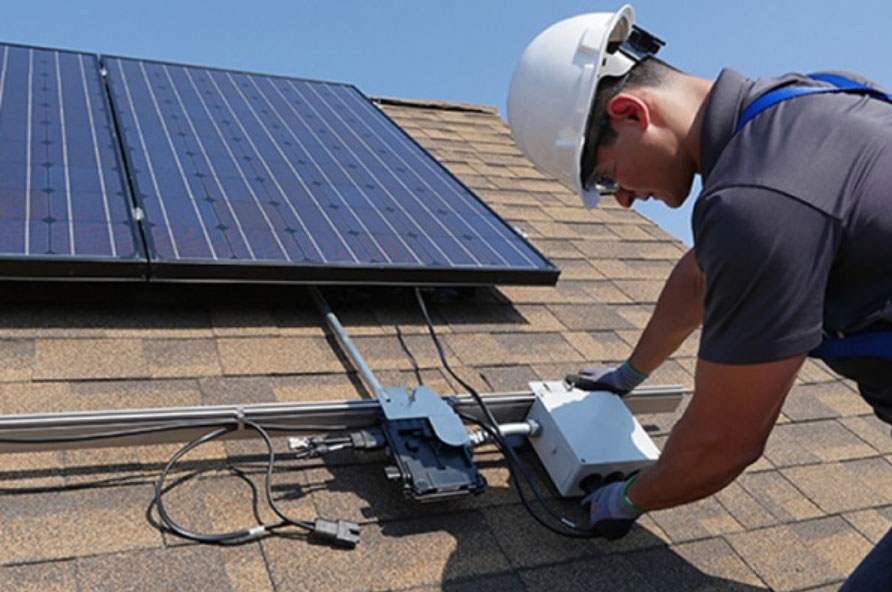
Micro inverters play a crucial role in enhancing the performance and energy efficiency of solar photovoltaic (PV) systems. Here’s how:
- Maximum Power Point Tracking (MPPT) at Panel Level: Micro inverters perform MPPT at the individual panel level. MPPT is a technique that ensures solar panels operate at their maximum power output regardless of environmental conditions like shading, temperature variations, or panel degradation. By performing MPPT at the panel level, micro inverters optimize the energy harvest of each panel independently, maximizing the overall energy yield of the system.
- Mitigation of Shading Effects: Shading on one solar panel in a traditional string inverter system can significantly reduce the performance of the entire string. However, micro inverters mitigate shading effects by isolating each panel’s performance. If one panel is shaded or underperforming due to dirt or debris, only that panel’s output is affected, while other panels continue to operate efficiently.
- Improved Reliability: Micro inverters enhance the reliability of solar PV systems by isolating potential points of failure. In traditional string inverter systems, if the central inverter fails, the entire system can shut down. With micro inverters, each panel operates independently, so a failure in one micro inverter does not affect the performance of the entire system. This increases system uptime and ensures consistent energy generation.
- Monitoring and Diagnostics: Many micro inverters come with built-in monitoring and diagnostic capabilities. These systems provide real-time data on the performance of each individual panel, allowing for early detection of issues such as panel degradation, faults, or underperformance. By identifying and addressing these issues promptly, micro inverters help maintain the system’s efficiency and optimize energy production over its lifetime.
- Scalability and Flexibility: Micro inverters offer scalability and flexibility in system design and expansion. Unlike traditional string inverters, where adding new panels may require adjustments to the entire system configuration, micro inverter-based systems allow for incremental expansion. New panels can be easily integrated into the existing setup without affecting the performance of the rest of the system.
Overall, micro inverters contribute significantly to improving the energy efficiency and performance of solar PV systems. Their ability to optimize energy harvest, mitigate shading effects, enhance reliability, provide monitoring and diagnostics, and offer scalability makes them a key component in maximizing the benefits of solar energy generation.
